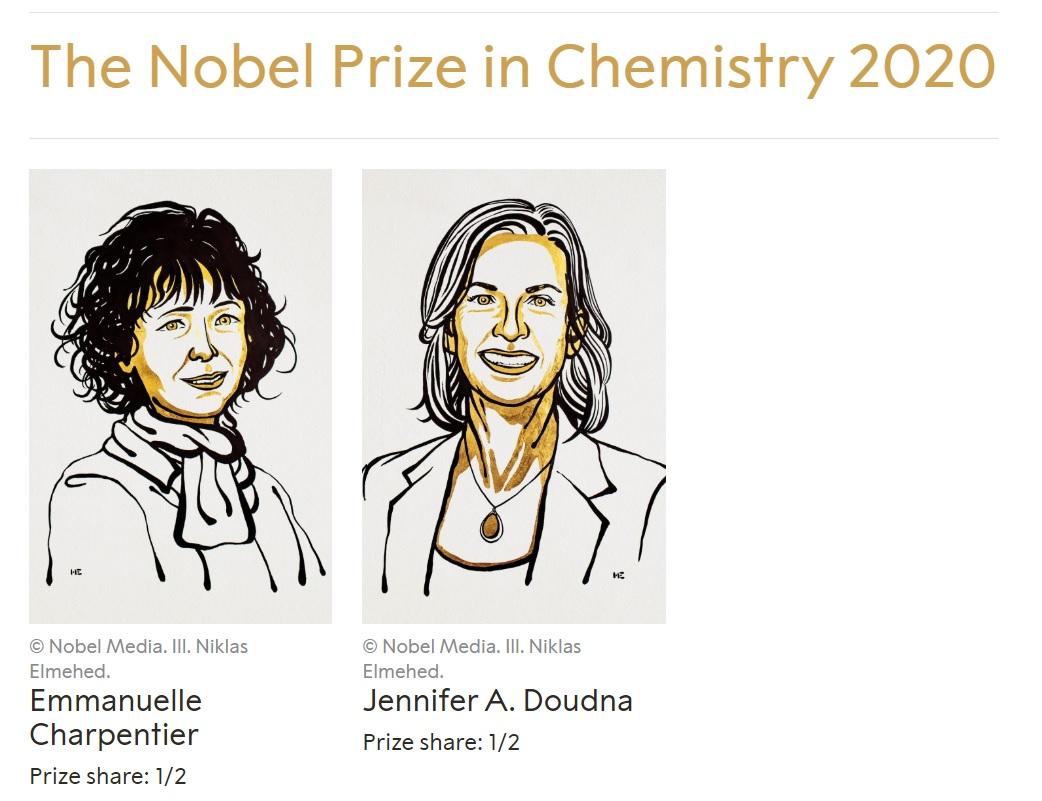The 2020 Nobel Prize in Chemistry has been announced, with French scientist Emmanuelle Charpentier and American scientist Jennifer A. Doudna receiving the prize in recognition of "developing a method of genome editing."

The two scientists engineered the CRISPR/Cas system into a gene-editing tool, giving the most effective tool in the field of gene editing , CRISPR/Cas9. The advent of the tool is arguably the most exciting breakthrough in biomedicine since the birth of genetic engineering, and has been a popular candidate for the Nobel Prize in recent years. CRISPR/Cas9 has a wide range of application prospects in the fields of medicine, agriculture and industry, and the technology has the hard work of a large number of outstanding scientists. Perhaps because of this, the patent dispute for this technology is almost inevitable.
Immediately after the news of the two scientists winning the award came out, there was a discussion in China: Why didn't Zhang Feng, a Chinese scientist, win the award? Zhang Feng and his team used CRISPR/Cas technology for gene editing in eukaryotes for the first time, and Zhang Feng and The Broad Institute have patents for CRISPR/Cas9 technology applied to eukaryotes in the United States. Zhang Feng has also been optimistic about winning the Nobel Prize for gene editing technology. Two winners of this year's Nobel Prize in Chemistry took Zhang Feng to court over the CRISPR patent dispute, but the result was not as they expected, and the US Supreme Court ruled that Zhang Feng's patent was valid.
Before crispr technology won the Nobel Prize, the technology had already won several awards. Almost every time Carpenter and Dudna appeared on the list of winners, Zhang Feng had fewer opportunities to appear on stage with them to receive the award. Sometimes scientists other than Zhang Feng will win awards with Carpenter and Dudna, and Zhang Feng is not on the list of winners at that time. It can be seen from this that Carpenter and Dudna are more likely to be recognized by the scientific community, their contributions in the field of gene editing are the most prominent, and their awards are highly anticipated.
Zhang Feng did not win the Nobel Prize, we can express our regret for it, but there is no need to amplify his interpretation because of his Chinese identity. There is no need to think that Zhang Feng did not win the award because zhang feng won the case. The court speaks of the court's reasoning, the scientific community has the norms of the scientific community, the Nobel Prize has the Nobel Prize selection method, and other awards have the selection method of other awards. Zhang Feng won the case but lost the Nobel Prize because the courts and the scientific community measured their achievements with different yardsticks.
Looking through the circle of friends, I saw Professor Zhang Yiguo's evaluation of Zhang Feng's missing Nobel Prize: "There is a fundamental reason here, the Western value system does not like 'small smart shortcuts', and even more hates 'unreasonable entanglement'. There are only two kinds of people who have changed the world of science: the first is the "madman" who boldly subverts, and the other is the "fool" who persists in farming... Therefore, it is impossible to reach the podium of the Swedish Nobel Prize. Zhang Yiguo has worked in the United States and britain for many years, made pioneering research in the field of topological genetics, and returned to China to work a few years ago, familiar with the scientific research environment of Chinese and Western countries.
Rao Yi wrote a couplet in the circle of friends: unique originality is more elegant than close competition, and discovery and invention are more important than publication and display.